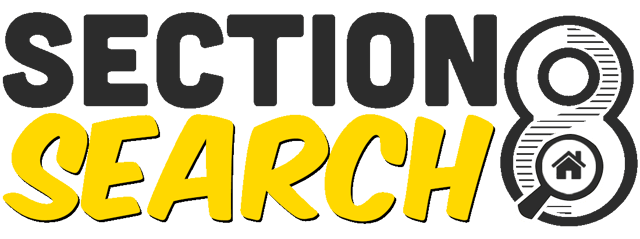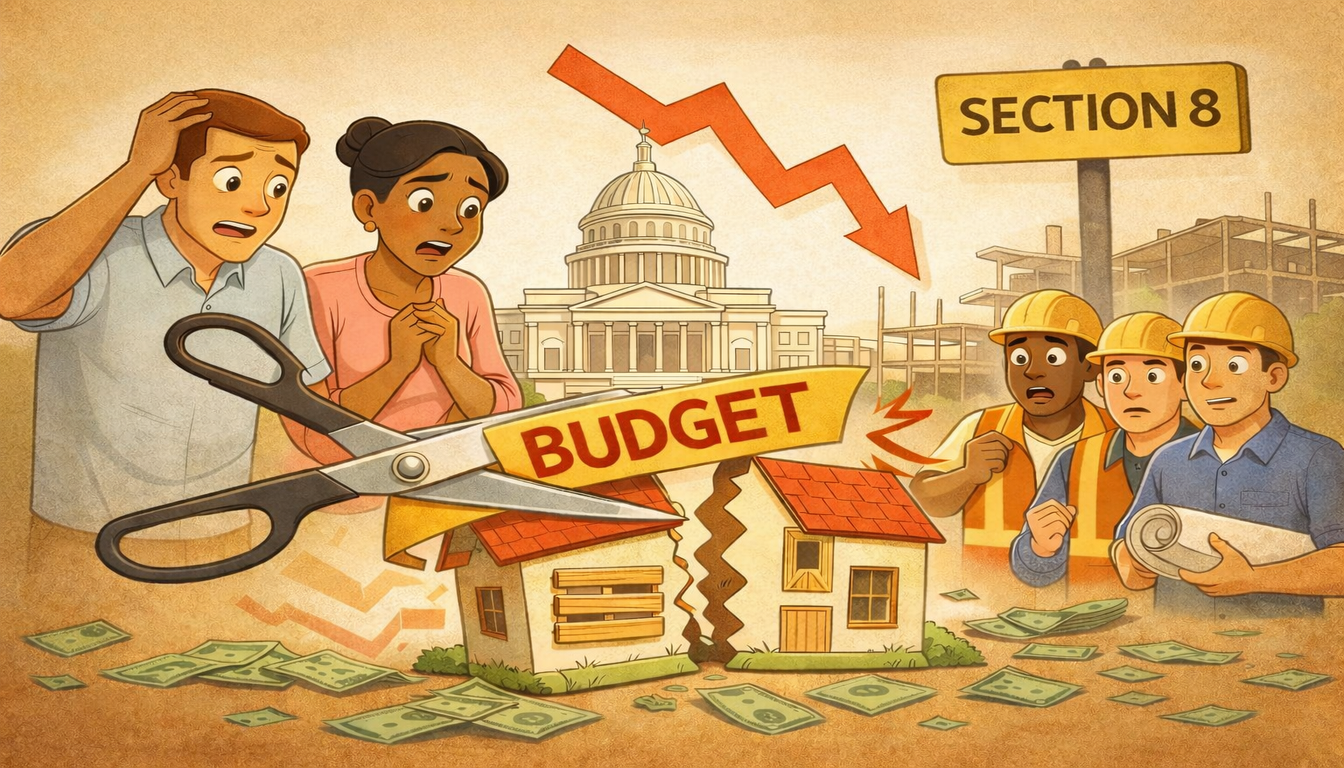
Access to affordable housing is a very important need, but its a big challenge for many immigrants.
Whether they are documented or undocumented, immigrants often face unique challenges in getting stable, affordable housing.
This article helps you understand the problems faced by immigrants, and gives simple tips for dealing with housing programs.
We'll look at topics like Section 8 housing for immigrants, housing for undocumented immigrants, eligibility criteria, and resources available for undocumented immigrants.
We will also talk about how advocates and social workers help immigrants find housing, and ways to overcome language and cultural challenges.
Whether you're a professional assisting immigrants or an immigrant seeking information, this guide is designed to help you understand and navigate the path to affordable housing.
Understanding the Challenges Immigrants Face in Housing
Immigrants can have many problems finding cheap housing, especially through government programs. These challenges can range from language barriers to just not being familiar with the local housing market. In fact, section 8 for immigrants is a very under-funded need today, and many immigrants greatly need more affordable housing availability.
Unfortunately, immigrants may also face discrimination based on their immigration status or nationality. This can make the process of finding and securing affordable housing even more difficult. Understanding these problems is the first thing to do to help immigrants find better housing.
Section 8 and Housing Assistance for Immigrants
Section 8, also known as the Housing Choice Voucher Program, is a federal assistance program that can help immigrants afford housing. It provides vouchers that cover a portion of the rent, making housing more affordable for low-income individuals and families.
- The program is administered by local public housing agencies.
- It is available to U.S. citizens, non-citizen nationals, and certain categories of immigrants.
How to Qualify for Housing Programs as a Documented Immigrant
Finding housing help as a documented immigrant can be confusing, but it doesn't have to be. There are two types of federal housing programs: restricted and non-restricted. Restricted programs are for documented immigrants or those with a citizen family member, especially if the head of the household is a citizen. If you're a documented immigrant seeking housing assistance, here are some steps and tips to help you begin.
Step 1: Verify Your Immigration Status
First, check your immigration status at your local county immigration office. Knowing your status is important because it will determine which housing assistance programs you can get. Make sure you have all your documents ready to save time and avoid problems later on..
Step 2: Find the Right Housing Program
Next, look for housing programs that suit your needs. There are many options for eligible immigrants to choose from:
- Section 8 Housing Choice Voucher: This program helps adjust your rental rates based on your income and the number of eligible people in your family.
- Public Housing: Provides affordable housing options for low-income families.
- Project-Based Section 8 Housing: Similar to the Housing Choice Voucher, but tied to specific properties.
Each of these programs has its own set of requirements and benefits, so take the time to research and find the one that aligns with your situation.
Step 3: Explore Rural Housing Programs
If you live in a rural area or are open to relocating, check out the US Department of Agriculture's rural housing programs. These programs offer rent subsidies to help make housing more affordable. It's important to note that at least one member of the household must be a citizen or a legal immigrant to qualify. Your immigration status will be verified, and you may also be asked to provide your social security number.
Eligibility Criteria for Housing Programs
Eligibility for Section 8 for immigrants and other housing assistance programs are determined by several factors. These include income level, family size, and immigration status.
It's really important to know that eligibility criteria can vary by program and location. It's crucial for immigrants to research and understand the specific requirements of the housing programs they are interested in to make sure that they qualify, and know how to apply.
Rent Assistance for Undocumented Immigrants
Rental help programs ask for social security numbers from applicants and their household members. This makes it hard for undocumented immigrants to apply for help. Undocumented immigrants are a big part of the population and often struggle to find housing. In the US, both documented and undocumented immigrants can get housing help.
Being documented means entering the country legally. Even if someone is not legal, they can still get help from the government for housing, food, and other basics.
Some states in the US offer rent relief for undocumented immigrants. They can get help paying rent for up to 12 months in the past and 3 months in the future. Applicants don't need to show their legal status, so it's easy for undocumented immigrants to apply. They don't have to provide citizenship or social security numbers. Undocumented immigrants without stable income or housing can get emergency housing help and rental assistance, but it's usually short-term. There are different types of rental assistance available for illegal immigrants, like shelters, transitional housing, and vouchers for motels and hotels.
Resources for Undocumented Immigrants
Undocumented immigrants usually face additional challenges in accessing affordable housing. However, there are resources available to help. Many non-profit organizations and advocacy groups offer help similar to Section 8 for undocumented immigrants seeking housing.
These groups can provide information on tenant rights, help with finding affordable housing, and offer support in dealing with potential discrimination. It's important for undocumented immigrants to connect with these resources to better navigate the housing system.
Navigating Local and Federal Housing Laws
Understanding local and federal housing laws is something immigrants have to do to improve their chances. These laws can impact eligibility for housing assistance and tenant rights. It's important to be aware of these laws to avoid potential legal issues and to make sure immigrants are getting fair treatment.
There are a lot of resources available to help immigrants understand these laws. Many non-profit organizations offer legal assistance and educational resources. These can help immigrants understand housing rules and defend their rights..
Steps to Improve Housing Access
Securing affordable housing can be very hard for immigrants. Luckily, there are steps they can take to improve the chances of success.
Here's a few strategies to help you get started:
- Build a strong rental application with references and proof of income.
- Understand the application process for housing assistance programs.
- Utilize online resources and databases for housing searches.
- Engage with local immigrant advocacy groups for support and resources.
- Seek out immigrant-friendly housing providers.
- Consider credit counseling services to build credit history in the U.S.
Following these steps will really help immigrants increase their chances of getting affordable housing.
Overcoming Language and Cultural Barriers
Language and cultural barriers can pose significant challenges for immigrants seeking housing. These barriers can make it difficult to understand housing laws, fill out applications, and communicate with landlords.
However, there are resources available to help. Many housing assistance programs offer translation and interpretation services. Housing services that understand different cultures can help immigrants with their specific needs. By using these services, immigrants can use the housing system more effectively to help get housing faster.
The Role of Advocates and Social Workers for Immigrant Housing
Advocates and social workers play a really important role in supporting immigrants in their search for affordable housing. They can help navigate complex housing systems, help with applications, and also offer emotional support during the approval process.
Also, they can help immigrants find resources like legal assistance, translation services, and financial counseling. By knowing the challenges immigrants face, advocates and social workers can provide tailored support that helps improve access to affordable housing.
Dealing with Discrimination and Finding Support
Discrimination can be a significant barrier to housing for immigrants. It's important to know that federal law prohibits housing discrimination based on national origin. If an immigrant experiences discrimination, they can report it to the Department of Housing and Urban Development.
Finding support is also very important. Immigrants can connect with local advocacy groups, non-profit organizations, and community resources. These groups can provide assistance, offer advice, and help immigrants understand their rights. They can also provide a sense of community, which can be comforting during the challenging process of securing housing.
Building Credit and Rental History in the U.S.
Building a credit history and rental record in the U.S. can be challenging for immigrants, but it's crucial for securing housing. Immigrants can start by opening a U.S. bank account, applying for a credit card, and making timely payments. Renting a home and consistently paying rent on time can also help establish a positive rental history.
Legal Assistance and Tenant Rights
Understanding tenant rights is essential for immigrants to protect themselves from potential exploitation. This includes knowing the rights to safe and habitable housing, protection from discrimination, and the right to privacy.
Legal assistance can be invaluable in navigating these rights. Many non-profit organizations offer free or low-cost legal services to immigrants. They can help with issues like eviction notices, discrimination complaints, and understanding lease agreements.
Navigating the Section 8 housing process can feel overwhelming, and that's where Section 8 Search comes in. We're more than just a listing website; we're a dedicated resource designed to make finding housing under the Housing Choice Voucher Program straightforward and stress-free. Our platform offers user-friendly tools to explore listings and waiting list statuses nationwide, all built on official HUD data. We're also passionate about providing clear, helpful information and guidance, empowering you with the knowledge you need to understand eligibility, complete your application, and confidently navigate your housing journey.






.png)
.png)
.jpg)



.png)
.png)
.png)





.png)